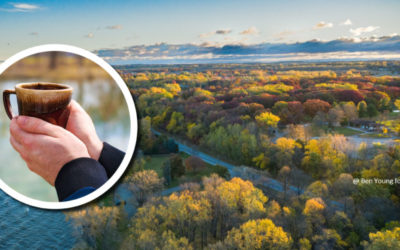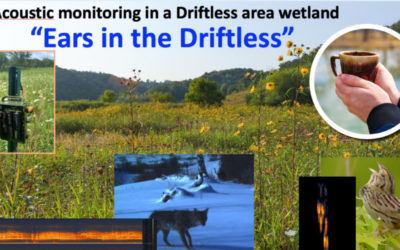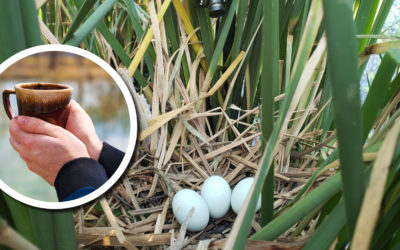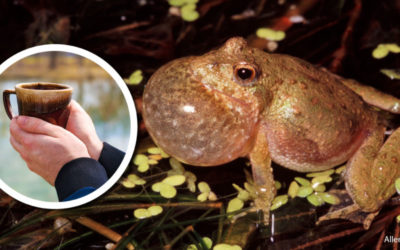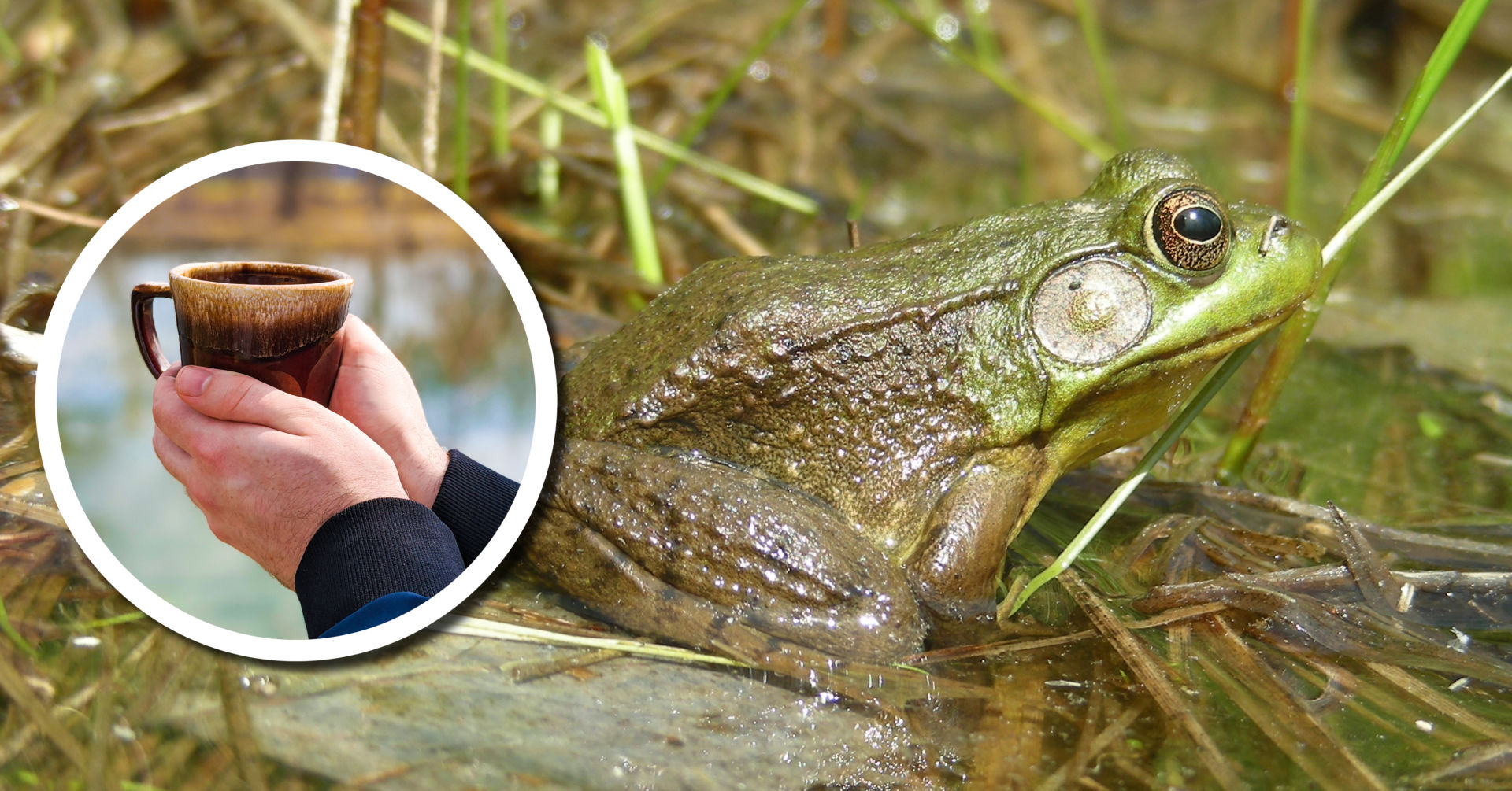Wetland Coffee Break
The Wetland Coffee Break series helps keep our community of wetland lovers connected and learning about wetlands throughout the year, from anywhere! Bring your coffee and learn about wetlands, the plants and animals that call them home, and the many natural benefits they provide to our communities. Sessions are held on Zoom and feature time for audience Q&A.
See below for a list of upcoming presentations and to register. Once you register, you’ll receive an automatic email including the URL link and password you’ll need to access the meeting. We record and post each presentation so you can watch any that you missed live. You’ll find links to these recordings below, and you can also find them on our Facebook page.
We are grateful to all of the presenters for sharing their knowledge and expertise and to everyone interested in learning more about wetlands! If you are interested in giving a Wetland Coffee Break presentation, or if you have a wetland topic you’d like to see covered, please contact Katie.Beilfuss@wisconsinwetlands.org.
We are now able to provide attendance verification to Wetland Coffee Break audience members who attend the live sessions and request this service. We created this mechanism in response to requests from members of the Wetland Coffee Break audience who would like to apply their Wetland Coffee Break learning to their continuing education or certification requirements. Learn more about how to receive attendance verification here.

Register for a Wetland Coffee Break
Carnivorous plants of the Northwoods
Emily Stone, Naturalist & Education Director, Cable Natural History Museum
Friday, March 13, 2026
10:30 am CT
Description
In some low-nutrient wetlands, plants reverse the food chain and become carnivorous to meet their needs. Discover the beauty and the impressive adaptations of these charismatic Northwoods residents with naturalist Emily Stone.
Emily Stone is a naturalist by birth, training, profession, and passion. After earning a Field Naturalist master’s degree from the University of Vermont with a wetland-focused project, Emily became the Naturalist/Education Director at the Cable Natural History Museum in Cable, Wisconsin. Emily writes a weekly “Natural Connections” column published in more than 20 local and regional newspapers. Her third Natural Connections book was published in November 2025.
Common Carex of wet open ground
Aaron Feggestad, Stantec
Friday, March 27, 2026
10:30 am CT
Description
Genus Carex, the true sedges, form a fascinating and diverse group of plants. An evolutionary success story, Carex is the most species-rich genus in Wisconsin with over 150 species. This introductory talk will focus on field identification characteristics of widely ranging Carex species of wet open ground (wet prairie, sedge meadows, fen, marsh). The content will focus on subgenus Carex and will be useful for anyone looking to build upon their knowledge of common species.
Aaron Feggestad has been a practicing wetland professional for the past 20+ years, primarily working in Wisconsin and the Great Lakes Region as a consulting ecologist, volunteer, and educator. Fascinated by the role of Carex in natural area function, and the importance of Carex in the restoration of many types of natural communities, he is working towards a goal of cataloging nearly all the 158 species that occur within the state.
Watch previous presentations
Click “Older Entries” below to see more past presentations, or view our Google Sheet index of past presentations here.
Wetland Coffee Break: Establishing a Bay of Green Bay National Estuarine Research Reserve
Watch Emily Tyner’s presentation on the process to designate the Bay of Green Bay as a National Estuarine Research Reserve (NERR).
Wetland Coffee Break: Ears in the Driftless
Learn how landowners Mike and Marcie O’Connor are using this technique to document habitat changes over the course of restoring wetlands on their land.
Wetland Coffee Break: Wisconsin’s amazing native mussels
Tune in for an introduction to the 50 species of native mussels in Wisconsin.
Wetland Coffee Break: How are water drawdowns affecting nest survival of marsh birds?
Hear about how nest cameras helped researchers to explore the impact of water drawdowns on predator access to and survival of marsh bird nests.
Wetland Coffee Break: Population status of Wisconsin’s endangered/threatened amphibians and reptiles
Join conservation biologist Rori Paloski to learn about the current population status of Wisconsin’s endangered and threatened wetland herptiles.
Wetland Coffee Break: New field guide to amphibian egg masses and larvae
Ever wonder what that tadpole is? Need to better identify wetland indicators on your wetland delineations? The new “Field Guide to Amphibian Eggs and Larvae of the Western Great Lakes” can help.

